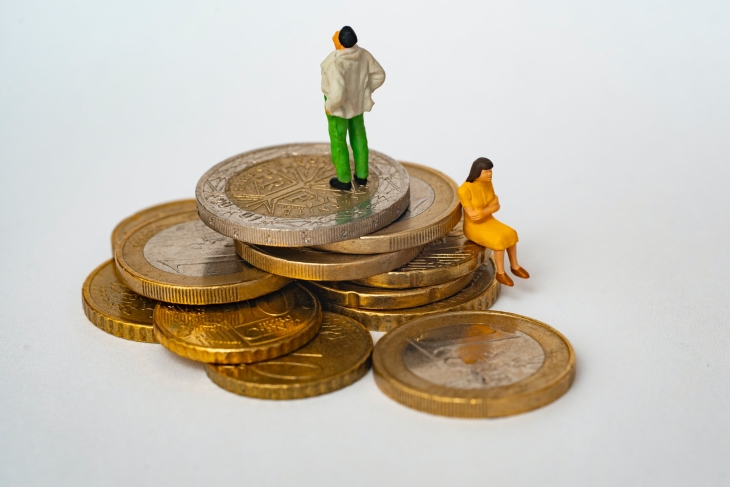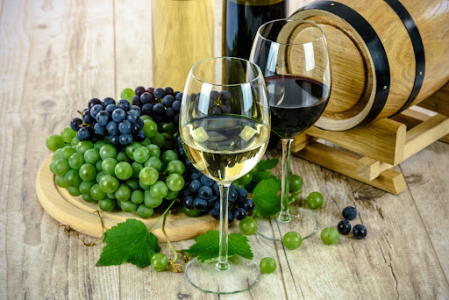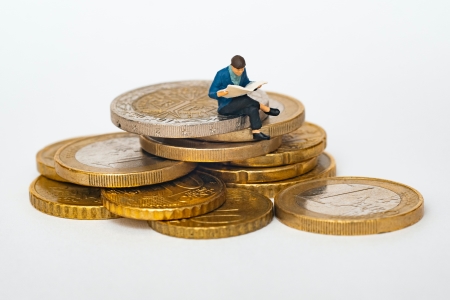Is Wine a Good Investment? Yes, Here Is Why:
Are you hitting your long-term investment goals? If so, it might be time for you to explore alternative investments. Adding non-traditional assets to your portfolio is an excellent way to boost diversification and yield returns that are not dependent on the stock or bond markets.
Fine wine has a track record of solid returns, low volatility, and tangibility. Plus, people around the world are consuming more wine than ever.
If you've been wondering if wine is a good investment, the short answer is yes. Below, Vint goes into more detail about how investing in fine wine could take your portfolio to the next level.
What Is Wine Investing?
When you invest in wine, the quality, scarcity, and value will appreciated over time, which is the primary purpose of investing in fine wine. Essentially, it means that you purchase bottles of wine, store them, and sell them sometime down the road, for more than you bought them for.
Depending on your investment method, you don't even have to have a physical inventory of purchased wine. You can invest in wine futures or have your bottles professionally stored for years on end. This is perhaps the most reliable way to ensure that your wines stay safe and age well until you are ready to sell them.
You can also invest in wine stocks and funds, which is ideal if you don't want to collect and store wine. Moreover, you can even have a wine investment company has purchased and stores for you. This is the most straightforward approach because you don't have to worry about building a wine cellar and experiencing the headaches that can come with it.
Top Reasons to Invest in Wine
We've already touched on how wine can be a good investment, but let's dive into more detail of how it can benefit your portfolio:
Wine Has a History of Strong ROI
Some sources have reported that fine wine has yielded a 13.6% annual return on investment during the last 15 years. That number means that investors could double their money every six or seven years to put that into perspective. Since 2003, the value of many wine indices has tripled.
A quick look into the last decade will show you that stock markets have not kept up with that pace at the same time. For example, the Dow Jones has registered a 10.7% annual return for investors who have reinvested their dividends and only a 7.8% return overall. Likewise, the S&P 500 reported an 8.58% yearly return and 10.66% for re-investors.
By far, fine wine outpaces global equities. But it also gives many other tangible assets a run for their money. For instance, the Knight Frank Luxury Investment Index (KFLII) experienced five out of nine asset classes yielding a negative return in 2020. Conversely, fine wine returned 13% that year, second only to Hermès handbags.
Wine Is a Tangible Asset
So much investing is left to numbers on a screen, whether you're keeping up with the stock market or checking your accounts. But fine wine is tangible. It is an asset that you can experience with friends and family at home, at vineyards, at art museums, and in many other scenarios. In other words, you directly own the object.
Take, for instance, that the investment company you were using for your fine wine investments went out of business next week. That wouldn't change the fact that you still own all of the bottles in your portfolio. Compare that to a stock, bond, or other types of public investment; rather than tangibly owning the investment, you essentially have a paper asset.
Another way to think about it is that it's easy for you to enjoy your fine wine investment. Unlike owning stock in a soda or beer company, you can simply pour your top-tier wine into a nice glass and sip away.
Wine Has Low Volatility
If you have been an investor for longer than five minutes, no one has to tell you how volatile the market can be. That's typically not the case with wine. The longer you keep a bottle of wine, the lower its volatility becomes. This is because of an imbalance of supply and demand. As wine drinkers enjoy a specific wine, fine wine's flawlessly inverse supply curve becomes more pronounced.
Like bonds, fine wine holds steady and consistent volatility levels, regardless of whether conventional markets fluctuate. You will not experience any roller coasters as a fine wine investor.
You will gain peace of mind knowing that your investment in wine offers low volatility. You don't have to think about how you time the market or the value of your portfolio unpredictably changing. You cannot trade your wine shares publicly, which means you don't have to stress out about public market volatility.
Wine Doesn't Correlate With Traditional Assets
Diversifying your portfolio should be a top priority if you hope to build long-term wealth because it shields your bottom line from all kinds of risks. Fine wine is so unique because it barely correlates with conventional assets and markets.
For example, when the COVID-19 pandemic began in 2020, the Dow Jones and S&P 500 dropped more than 20% in the first quarter. The proprietary index Vinovest 100, which reports on 12 different global fine wine markets, saw a 1% rise.
A healthy investment portfolio contains diverse assets that vary in how they correlate to the stock market. This is because it mitigates risk and maximizes opportunity.
Some investors make the mistake of assuming that choosing many different stocks, bonds, and mutual funds will give them a healthfully diverse portfolio. But since such assets are all contingent on the same systematic factors, they are vulnerable to the same risks. That's why investors can lose so much money when liquidity, interest rates, and inflation—not to mention inherent risk—from a stock market crash.
On the other hand, interest rates and inflation don't significantly impact the value of fine wine. Wine prices impact the growing scarcity of vintage wine and the risking consumption trends.
In other words, the risks are dramatically different and generally less in number and severity. Just look at the last recession; the fine wine market thrived while conventional investments could not keep up.
Wine Consumption Is Rising Globally
Americans are drinking more than a billion gallons of wine each year. 2020 saw a doubling of wine consumption in the United States since 1996 and broke the ten-digit threshold for the first time. In other words, wine is a cherished beverage in the Land of Opportunity.
But the love for wine stretches across the world. Increasing wealth has encouraged more people in Asia, Russia, and other markets to invest in fine wine, and many outlets have claimed that investment-grade wines are skyrocketing in demand.
The best part about it is that we can expect this demand to continue increasing for the foreseeable future, particularly regarding highly rated vintage wines. The reason is simple: as more vintage wine is consumed, the supply will drop. This means that rare wines will continue to become more scarce and more expensive, leaving the most straightforward supply and demand in balance possible.
"Wining" Down
You are progressing well toward your investment goals and looking to diversify your assets with solid returns and low risk. Alternative investments like fine wine are the solution. And while wine is an excellent, tangible asset to invest in today, it will be even more so tomorrow.
Keep learning everything you can about investing in fine wine and reach out to Vint to learn about our fully transparent platform.
Sources:
Fine wine: The unconventionally attractive alt investment | InvestmentNews
Coronavirus Crash of 2020, And the Investing Lesson It Taught | Forbes
Average Wine Consumption Per U.S. Resident 2005-2020 | Statista


